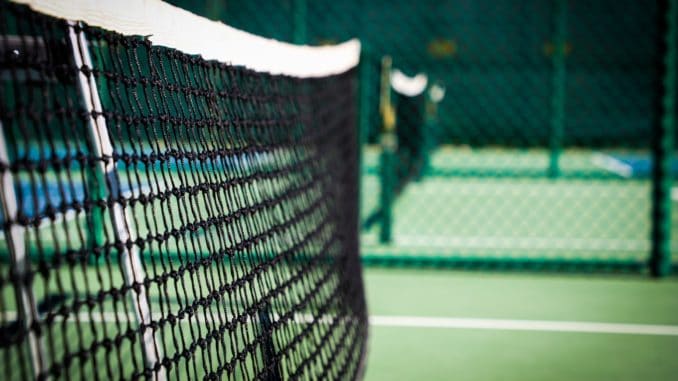
Among prominent figures in pro tennis, there are a few people players simply know to listen to. Brad Gilbert, for his occasionally silly brand of commentary, is an extremely valuable instructor who spent time coaching Andre Agassi, Andy Murray, and Andy Roddick (among others).
He frequently takes time to interact with fans and amateur players, and is known for having penned a book of tennis wisdom titled “Winning Ugly.” Patrick Mouratoglou, best known as the current coach for Serena Williams, Stefanos Tsitsipas, and Coco Gauff, has become a bona find modern guru of the game, and often provides helpful insights on air at tennis events. And the list goes on: Goran Ivanišević, Paul Annacone, Patrick McEnroe, and more.
Even next to all of these names though, there are few people that serious tennis fans and players will take more seriously than Boris Becker. A legendary and fiery player in his day, Becker has seen about everything there is to see in the sport.
However, in his retirement he’s settled into a cool, calculating approach, conveying quiet but unrivalled brilliance regarding the game. He also established an incredible pro coaching legacy in extremely short time; we noted in looking at traits of good tennis coaches that past experience matters, and cited Becker’s as an example.
The former champion spent just three years coaching Novak Djokovic, and led the Serbian star to six Grand Slams and 14 ATP Masters titles in that time.
Becker’s combined experience as a player and coach makes him an invaluable voice when it comes to instruction. And fortunately for those of us who love tennis, he’s fairly generous with his tips. He’s discussed for instance that what makes Djokovic an unrivalled returner is his intent, not just to return serve but to win those points.
Becker has frequently done public tutorials deconstructing footwork, groundstrokes, and so on. He’s even done a YouTube series with Ralph Lauren giving tips on everything from how to choose your racket grip to how to hit the perfect serve.
Any word of instruction out of Becker is worth paying attention to. But there’s also an aspect of Becker’s competitive side that we don’t typically talk about with regard to instruction — and perhaps should.
In his retirement, the German champion has also become an avid poker player. We don’t have much from him in terms of specific tips for this game. However, there is something to be said for emulating the hobby in general. Because just as poker is often discussed for providing players with various skills and benefits, there are reasons to believe it can help your tennis game.
Keeping a Level Head
The people who are best in the world at playing no-limit Texas Hold’em — the poker variety most of us are most familiar with — practice and preach the importance of keeping a level head.
Players like Daniel Negreanu, Phil Ivey, and Phil Hellmuth are all as significant to poker as Becker is to tennis, and are all known for their calmness in the face of high stakes and extraordinary pressure. Of course, that pressure is different than what one experiences on a tennis court.
But the ability to keep a level head in tense situations is a skill unto itself, and one that can be learned through poker.
Learning to Read Opponents
As with keeping a level head, learning to read opponents at the poker table is not the same as deciphering a tennis competitor. Once again though, this is at some level a fundamental skill that can be learned. Poker players intimately study their opposition in order to recognise tendencies and tells, and even play some psychological games.
Tennis players, at least at a high level, are doing the same thing. Both are extremely mental games, and what you learn in one with regard to psychology can absolutely be useful in the other.
Developing Short Memory
Rafael Nadal has been referred to as the “ultimate fighter” by former player Emilio Sanchez, largely on the grounds that Nadal “forgets about what happened on the previous ball and goes for the next ball.”
It’s a trait the very best players share, often described as “short memory” — the ability to forget about a big point won or lost and focus completely on what’s next.
This too is something poker players learn to thrive at. Getting hung up on a recent hand or game causes a lapse in focus on the present, whereas having a “short memory” keeps players in the moment. And once again, the skill can translate to tennis even if it’s learned through poker.
Assessing Risk & Reward
Poker players must also become skilled at assessing risk and reward. They come to understand when it’s wise to be aggressive, and when to sit back and wait for the game to come to them. This is a very different strategy in tennis, when the same kinds of calculations have to be made quite literally in the blink of an eye. However, it’s not a stretch to think that certain instincts of his kind that one develops at the poker table can lead to better decision-making on the tennis court.
When you think about this crossover, it’s no wonder Becker appears to be a skilled poker player. He learned these skills through tennis first, and undoubtedly uses them to his advantage at the tables.
But there’s no reason other players shouldn’t draw on the hobby as another, unspoken lesson from the tennis great. As far as outside hobbies go, poker has a lot to offer a tennis player.